Former US national security adviser John Bolton on Thursday said Israelis should be worried about US President Donald Trump winning a second term in office.
Bolton excoriated his ex-boss as detached from reality, and said Trump could shift policies and try to foster ties in a second term with Iran’s regime, as he did with North Korea.
Bolton said in a video conference interview with Channel 13 that Trump had been eager “to have a meeting with the Iranian leadership… to talk about getting a new nuclear deal with Iran.”
“Just as Kim Jong Un played Trump along in the Korea context, I worry that in a second term the Iranians might be able to do the same,” Bolton said.
Bolton said that while he was ambassador to the UN under former US president George W. Bush, he believed Bush when the president said he wouldn’t allow Iran to get nuclear weapons.
Now, when asked whether he believes Trump’s vows to rein in Iran, Bolton said: “I don’t know.”
“I think [Trump] has his own definition of what amounts to honesty,” Bolton said. “He certainly has a lot of different versions of facts. They tend to come and go as they suit him. I found that very frustrating, I think foreign leaders find it frustrating. I’d rather have somebody more grounded in reality as president.”
Bolton, an outspoken proponent of regime change and military action against Iran, said Israel should not count on Trump — or Biden — backing if it attacks Iran to stop its nuclear program.
Bolton surmised that Trump could pull support for West Bank annexation, depending on his poll performance. He called on Israel to announce the move without US approval.
“It could be, from his perspective, no decision today is actually a good thing because it gives him more time as we get closer to the election to make a decision better based on where he stands in the polls and what the effect on the election would be,” he said. “If the government of Israel decided to go ahead on annexation without a statement by the US one way or the other, that is in my view the way they should go.”
READ ALSO: More than 800 arrested across Europe as police hack crime network
He expressed doubt in the administration’s ability to construct any sort of meaningful peace deal between Israel and the Palestinians.
“It’s not going to happen. It’s certainly not going to happen in the next four months,” he said. “If Trump is reelected what will he do then? Maybe he’ll just turn away from it because he wants the trade deal with China, and you can only do so many greatest deals in the history of the world in one administration.”
Bolton was presented during the interview with several examples of Prime Minister Benjamin Netanyahu using Trump-like tactics, such as focusing attacks on the media, and asked whether he thought the two leaders were similar.
“No, not at all,” Bolton answered. “Prime Minister Netanyahu is a very successful politician. I’ve had the privilege of knowing him for many years. I’m a great admirer. It’s no comparison. I’d like to say I’m glad Israel is on the US’s side.”
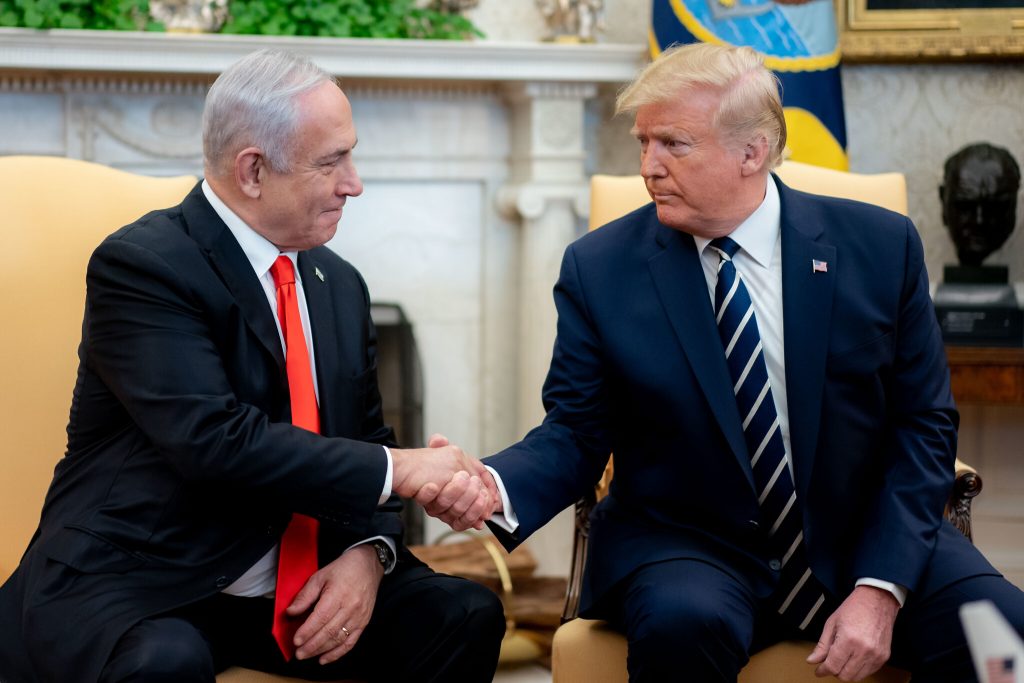
President Donald J. Trump and Vice President Mike Pence participate in an expanded bilateral meeting with Israeli Prime Minister Benjamin Netanyahu Monday, Jan. 27, 2020, in the Oval Office of the White House. (Official White House Photo by D. Myles Cullen)
Bolton was forced out of the adviser position by Trump last September, and late last month released a tell-all book about his time at the White House titled “The Room Where It Happened.”
Trump’s administration had sought to halt publication of Bolton’s book, but a US judge refused to block its release, saying it was too late for a restraining order.
Bolton’s book previously revealed that Trump gave Netanyahu the green light to attack Iran, and that Netanyahu had reservations about Trump’s son-in-law Jared Kushner as the architect of the White House peace plan.
Uncertainty reigns over Netanyahu’s stalled push for annexing parts of the West Bank, as his self-imposed July 1 start date for the process passed by uneventfully.
The plan, unveiled by the White House in January, envisions bringing some 30 percent of the territory — covering all 132 settlements, home to 450,000 Israelis, and the strategic Jordan Valley — under permanent Israeli control, while conditionally giving the Palestinians statehood in the remaining West Bank land and additional territory inside Israel.
The US abandoned the landmark Iran nuclear deal in 2018, imposing sanctions on Iran and sparking a steady rise in tensions between the two countries. The 2015 deal promised Iran sanctions relief in exchange for limiting its atomic activities.
Since Trump’s withdrawal from the nuclear deal, Iran has broken all the accord’s production limits.
On Thursday, hours after it reported an “accident” at its Natanz nuclear complex, and said there were no casualties or radioactive pollution, Iran warned that it would weigh its response to “hostile countries,” including Israel and the US, if they had crossed Iran’s “red lines in any way.”
































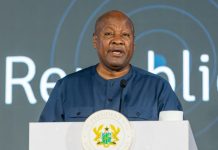


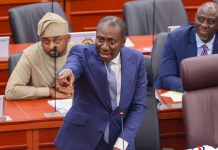

















![[FREE FREE MONEY] Predict and Win a Guaranteed GH¢200 From Us EVERY WEEK](https://wordpress.ghanatalksradio.com/wp-content/uploads/2022/02/Predict-and-Win-Final-09-03-2021-218x150.jpg)
![[Predict & Win – 8th/Oct.] WIN A Guaranteed ¢200 From Us This Week](https://wordpress.ghanatalksradio.com/wp-content/uploads/2021/10/maxresdefault-16-218x150.jpg)
![[Predict & Win – 2nd] WIN A Guaranteed ¢200 From Us This Week](https://wordpress.ghanatalksradio.com/wp-content/uploads/2021/09/maxresdefault-50-218x150.jpg)
![[Predict & Win – 25th] WIN A Guaranteed ¢200 From Us This Week](https://wordpress.ghanatalksradio.com/wp-content/uploads/2021/09/maxresdefault-36-218x150.jpg)
![[Predict & Win – 18th] WIN A Guaranteed ¢200 From Us This Week](https://wordpress.ghanatalksradio.com/wp-content/uploads/2021/09/maxresdefault-23-218x150.jpg)
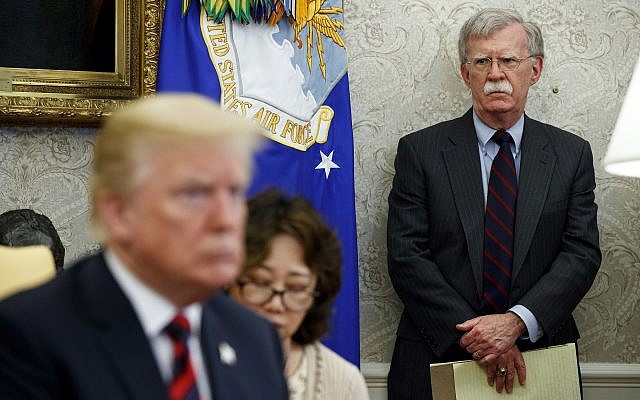
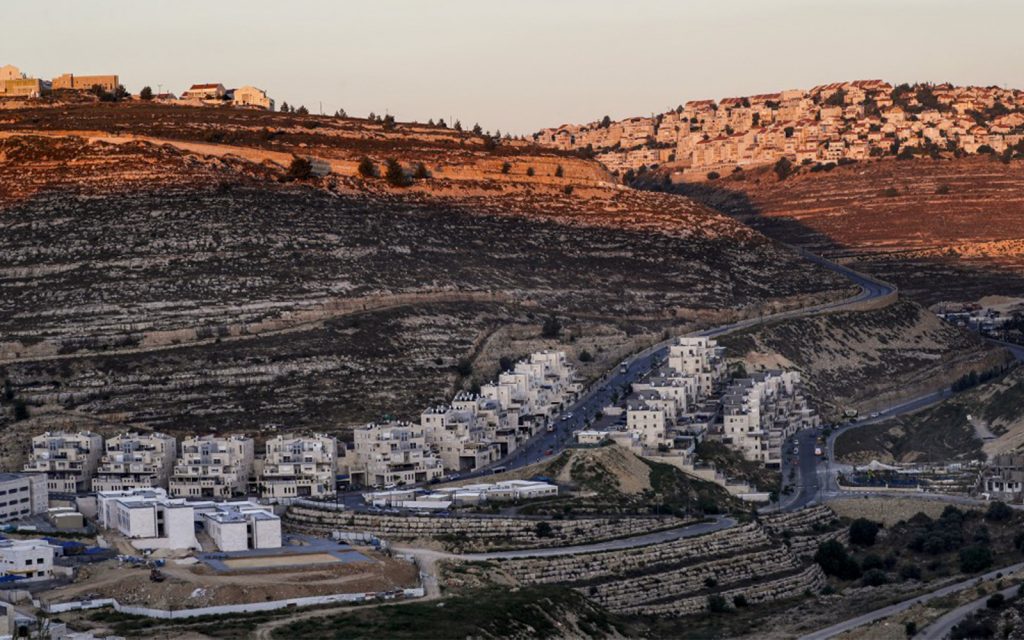
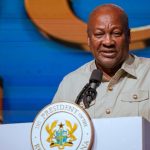
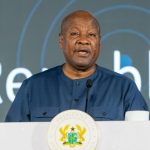






![[National cathedral] See full list of churches that have contributed since 2018](https://wordpress.ghanatalksradio.com/wp-content/uploads/2020/09/Ghana-National-Cathedral-GhanaTalksRadio-100x70.jpg)



